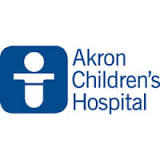Prophylactic Phenobarbital After Neonatal Seizures
| Status: | Terminated |
|---|---|
| Conditions: | Neurology |
| Therapuetic Areas: | Neurology |
| Healthy: | No |
| Age Range: | Any |
| Updated: | 4/21/2016 |
| Start Date: | September 2010 |
| End Date: | November 2014 |
Prophylactic Phenobarbital After Resolution of Neonatal Seizures
The treatment of infants with medications after their seizures have stopped is very
variable. No one knows if continuing treatment with phenobarbital for up to several months
is helpful or harmful. This clinical trial is designed to help answer that question and
provide data that will help determine standard of care for these children.
variable. No one knows if continuing treatment with phenobarbital for up to several months
is helpful or harmful. This clinical trial is designed to help answer that question and
provide data that will help determine standard of care for these children.
The treatment of infants with antiepileptic medications after the resolution of neonatal
seizures is highly variable and controversial. Infants are commonly treated with
phenobarbital after their seizures have resolved to prevent recurrence. Data to support this
practice are lacking but animal models suggest that the neonatal brain is vulnerable to
repeated seizures. Yet exposure of the developing brain to phenobarbital for prolonged
periods may have deleterious consequences. We are proposing a multi-center, randomized,
clinical trial (RCT) to determine if continued treatment with phenobarbital reduces seizure
recurrence without adversely affecting neurodevelopmental outcome or if infants' outcomes
are improved if no prophylactic medication is given. We will identify infants with seizures
beginning in the first week that resolve within 7 days and randomize them to receive
phenobarbital or placebo daily for four months. Via visits and frequent telephone contacts
over the first six months, we will determine the rate of seizure recurrence. The primary
outcome, neurodevelopmental status, will be assessed at 18-22 months using the Bayley Scales
of Infant Development. Additional subgroup analyses are planned to determine the
contribution of seizure etiology to outcome and predictive value of initial EEG
classification. The trial will be conducted at 18 - 20 sites, chosen for their experience
and proven track record for enrollment and retention in this specific population. The trial
will be coordinated by the Clinical Trials Coordination Center at the University of
Rochester and overseen by a Steering Committee composed of experienced trialists
representing neonatology and pediatric neurology, biostatistics, and clinical trial
administration.
Extrapolation from the results of an RCT of phenobarbital prophylaxis after febrile seizures
in children suggests that phenobarbital may adversely affect brain development and may be
ineffective in preventing seizures. Based on this previous RCT that resulted in near
universal change in practice (the elimination of prolonged use of phenobarbital after simple
febrile seizures), we anticipate that the data we generate may have a similar impact on
standard of care for infants with neonatal seizures.
seizures is highly variable and controversial. Infants are commonly treated with
phenobarbital after their seizures have resolved to prevent recurrence. Data to support this
practice are lacking but animal models suggest that the neonatal brain is vulnerable to
repeated seizures. Yet exposure of the developing brain to phenobarbital for prolonged
periods may have deleterious consequences. We are proposing a multi-center, randomized,
clinical trial (RCT) to determine if continued treatment with phenobarbital reduces seizure
recurrence without adversely affecting neurodevelopmental outcome or if infants' outcomes
are improved if no prophylactic medication is given. We will identify infants with seizures
beginning in the first week that resolve within 7 days and randomize them to receive
phenobarbital or placebo daily for four months. Via visits and frequent telephone contacts
over the first six months, we will determine the rate of seizure recurrence. The primary
outcome, neurodevelopmental status, will be assessed at 18-22 months using the Bayley Scales
of Infant Development. Additional subgroup analyses are planned to determine the
contribution of seizure etiology to outcome and predictive value of initial EEG
classification. The trial will be conducted at 18 - 20 sites, chosen for their experience
and proven track record for enrollment and retention in this specific population. The trial
will be coordinated by the Clinical Trials Coordination Center at the University of
Rochester and overseen by a Steering Committee composed of experienced trialists
representing neonatology and pediatric neurology, biostatistics, and clinical trial
administration.
Extrapolation from the results of an RCT of phenobarbital prophylaxis after febrile seizures
in children suggests that phenobarbital may adversely affect brain development and may be
ineffective in preventing seizures. Based on this previous RCT that resulted in near
universal change in practice (the elimination of prolonged use of phenobarbital after simple
febrile seizures), we anticipate that the data we generate may have a similar impact on
standard of care for infants with neonatal seizures.
Inclusion Criteria:
- Birth at > 34 weeks' gestation
- Neonatal seizures (clinical, electrographic or both), with onset in the first 120
hours after birth and resolution within 7 days of onset
- Parental informed consent
Exclusion Criteria:
- Birth at < 34 weeks' gestation
- If the attending neonatologist attributes the seizures solely to a transient
abnormality, easily correctable and unlikely to recur (eg, transient electrolyte
abnormalities). If the attending neonatologist cannot be contacted, the site PI will
be asked to review the available information and judge whether the infant is
eligible.
- If the infant has been diagnosed with or there is a strong suspicion of an inborn
error of metabolism, significant brain malformation, microcephaly (< 3 %ile), or a
chromosomal abnormality which, in the absence of seizures, is known to be
independently associated with an increased likelihood of cognitive impairment
- If the infant has been diagnosed with an intrauterine viral infection
- If the infant is not expected to survive to discharge
We found this trial at
18
sites
University of Virginia The University of Virginia is distinctive among institutions of higher education. Founded...
Click here to add this to my saved trials
Akron Children's Hospital From humble beginnings as a day nursery in 1890, Akron Children
Click here to add this to my saved trials
Johns Hopkins University The Johns Hopkins University opened in 1876, with the inauguration of its...
Click here to add this to my saved trials
Tufts Medical Center Tufts Medical Center is an internationally-respected academic medical center – a teaching...
Click here to add this to my saved trials
Nationwide Children's Hospital At Nationwide Children’s, we are creating the future of pediatric health care....
Click here to add this to my saved trials
Click here to add this to my saved trials
University of Pittsburgh The University of Pittsburgh is a state-related research university, founded as the...
Click here to add this to my saved trials
University of Rochester The University of Rochester is one of the country's top-tier research universities....
Click here to add this to my saved trials
University of Utah Research is a major component in the life of the U benefiting...
Click here to add this to my saved trials
Click here to add this to my saved trials
University of Michigan The University of Michigan was founded in 1817 as one of the...
Click here to add this to my saved trials
Click here to add this to my saved trials
Click here to add this to my saved trials
Click here to add this to my saved trials
101 Dudley St
Providence, Rhode Island 02905
Providence, Rhode Island 02905
(401) 274-1100

Women and Infants Hospital of Rhode Island Women & Infants Hospital of Rhode Island, a...
Click here to add this to my saved trials
Click here to add this to my saved trials
Click here to add this to my saved trials
Click here to add this to my saved trials









